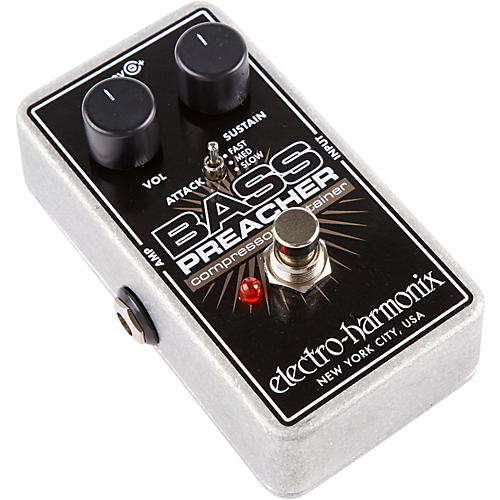



None of these will yield a consistent sound across strings as you play fast passages and use the entire range of your instrument. Neither can this issue be solved by ‘perfect technique’ or by ultra-high-end bass builds with custom scale length and fanned frets. Try working with the mids on the EQ control panel first or upgrade your instrument/pickups. The amp, EQ, pickups and other factors will also influence the clarity of your low B. Of course, the reason your B-string sounds dead or muddy isn’t necessarily an issue of compression. Most compressors with a high-input and high ratio will respond to this by killing the lows. The Low B hangs out at 31 Hz and requires a lot of mass and slow vibration to ring out. They will also produce a lot of self-noise and squash the signal at high-comp levels. A compressor built for guitars, or any generic comp, will completely kill the low B because the unit isn’t designed for the extended range. Is there any reason peculiar to 5-string basses having a special need for compression ? A 5-stringer deals with sonic challenges that don’t apply to a 4-string bass.Īchieving a consistent timbre across 5 strings, especially the low-B, is a vital aspect that compression can address. A compressor attenuates the instrument signal down when it is too loud and boosts it up when it is too quiet, thus making your volume more even throughout your performance. The general purpose of a bass compressor is to level out the dynamic range of your bass.


 0 kommentar(er)
0 kommentar(er)
